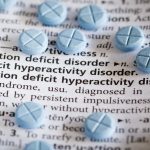
Fried foods not only wreck the waistline, but they could also be harming the brain, a new study of lab rats suggests. Fed chow that was fried in sesame or sunflower oil, the rodents developed liver and colon problems that wound up affecting their brain health, researchers found. These brain health effects not only were found in the lab rats that munched down the fried food, but also in their offspring, noted lead researcher Kathiresan Shanmugam, an associate professor with the Central University of Tamil Nadu in India. These results suggest that reused frying oil could affect connections between the liver, gut and brain, Shanmugam said. “Deep-frying at high temperatures has been linked with several metabolic disorders, but there have been no long-term investigations on the influence of deep-fried oil consumption and its detrimental effects on health,” Shanmugam said. “To our knowledge we are first to report long-term deep-fried oil supplementation increases neurodegeneration in the first-generation offspring.” Scientists stress that this is early research, however, and animal studies don’t always pan out in humans. The study was presented Sunday at the American Society for Biochemistry and Molecular Biology annual meeting in San Antonio, Texas. Deep frying adds loads of fat calories to food, researchers noted. In addition, frying oil that’s reused often loses many of its natural antioxidants and health benefits, while gaining harmful compounds.… read on > read on >


































-300x200.jpg)



